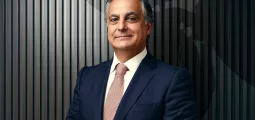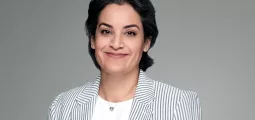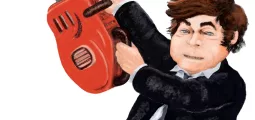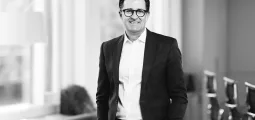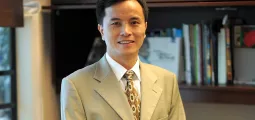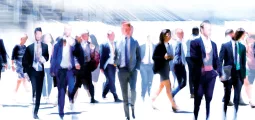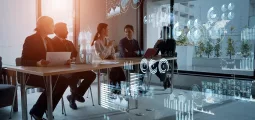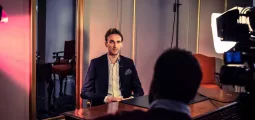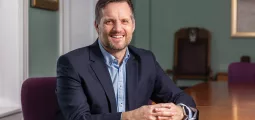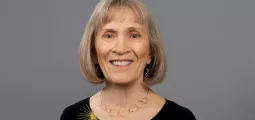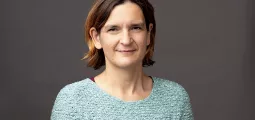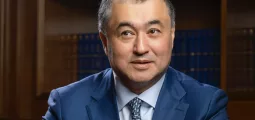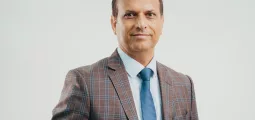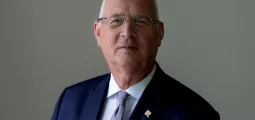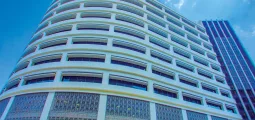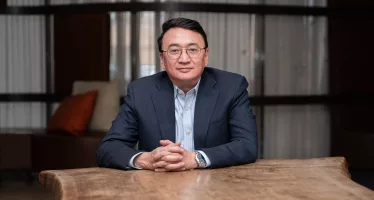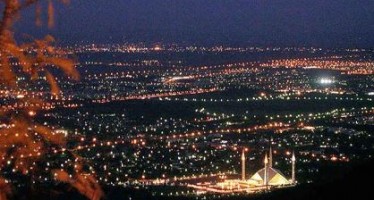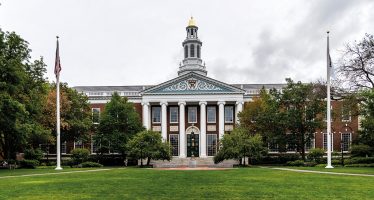European Council’s Van Rompey: Europe Must Overcome Crisis to Defend Democratic Values
European Council President Herman Van Rompuy’s speech “Europe on the World Stage” recently given in London emphasized the complete change of the global landscape, identifying three main trends: “One: the stage is getting more crowded. Two: the public comes closer to the stage than ever before, even to the extent of itself becoming an actor. Three: the nature of the play is changing. You may notice I use metaphors from the theatre. These may be less fashionable today in the field of foreign affairs than concepts from game theory, like “zero-sum” or “win-win”, or geology, “shifting tectonic plates”. Yet they perfectly capture the nature of politics, its drama. Here in the London of William Shakespeare, I do not have to explain it: All the world’s a stage!”
From these three trends, the President drew the following conclusions for the European Union’s Member States: “First: on a crowded global stage, it makes even more sense to work together as a club. Second: in a world where public scrutiny plays an ever stronger role, we must defend our democratic values. Third: faced with the new play of global interdependence and global governance, we need a presence in all the world’s regions.”
Europe has a role to play: politically, economically, and also militarily. And in most cases, European countries can perform better by working jointly. (…) The Union is not about giving up your own role; no, it is about leveraging our strength by aligning our positions, pooling resources, acting in the world as a club — and increasingly as a team. Even if, for not having its own army, the European Union is seen as using mainly soft means, we achieve pretty hard goals.” Examples mentioned by the President in the field of security included stabilising the European continent through enlargement, putting pressure on the regimes in Iran and Syria, monitoring borders after wars, paving the way politically for the intervention in Libya.
“… we must defend our democratic values”
– Herman Van Rompuy
He also underlined the importance for trade, as “an engine for growth” but also as “an engine for change”. To conclude, President Van Rompuy stressed that “we already are a ‘club’ of states in the world, a Union – and perceived as such by the others. The Europeans share a certain vision and approach in foreign affairs, different from that of the Russians, the Chinese, the Japanese, or even the Americans. Sure, all Member States do not share every position on every issue. But single disagreements — for instance on Palestinian statehood — should not be seen as a proof that Europe lacks a common foreign policy. The fact is that today, in the most dangerous hot-spots, such as Syria, Iran or the Israeli-Palestine conflict, the 27 very easily find common positions, sometimes within hours.”
“Now is the time to build on this confidence. European foreign policy is a daily reality for the 27 Member States. The financial and economic crisis, deep as it is, does not stop that. Yet overcoming the crisis is an absolute pre-requisite for much else. Restoring the Eurozone’s stability is indispensable for us to punch our full weight at the
global stage. I am convinced that, for that, we also have to structurally increase our economic growth. Even if it is perfectly normal that ‘mature’ economies grow more slowly than emerging ones, a potential growth of 1.5 pct is simply too low. We must focus therefore internally as much on growth as on stability.
The world is looking at us. Our efforts to overcome the crisis have become a key issue in our dealings with international partners. Explaining our course of action, the political constraints under which we work, reassuring our partners on our ability to keep moving forward: these are among our highest foreign policy priorities at the moment.

Herman Achille Van Rompuy, President of the European Council. Source: The Council of the European Union
Ii also involves making the case that the Eurozone is not the only region having to adjust its “internal balances”. So have the others, and the US and China have to deal with big “external imbalances” on top of it. Maintaining strong relations and mutual trust with our international partners will be key for the recovery of our economies. In such times, a strong diplomacy isn’t a luxury we could be tempted to disregard, but an absolute necessity. It concerns each and every member state. Since the 1950s, Member States have always intensified their cooperation as a result of ideas and ideals on the one hand, sheer necessity on the other. Once again today the pressure of events is huge: financially, globally.”
Source: The speech contributed by the European Council was given in London at Chatham House, 31 May 2012.
Herman Achille Van Rompuy is the first long-term, full-time President of the European Council. His now second term as the President of the European Council is set to last to November 2014 as he was re-elected by the heads of state or government of the 27 EU member states. Prior, as a Belgian politician Van Rompuy served as Prime minister until 2009.
You may have an interest in also reading…
Small is Beautiful in Banking: Little US Institutions Form a Financial Backbone
Yerbol Orynbayev, former Deputy Prime Minister of Kazakhstan and World Bank governor, reports for CFI.co on the American banking sector.
World Bank Group Increased Support for Reforms to Accelerate Economic Growth
Annette Dixon, new Vice President of World Bank Group’s South Asia Region made an introductory visit to Pakistan from April
Harvard Business School on Impact-Weighted Accounts: the Missing Piece in Economy Puzzle
Capitalism is in need of a renaissance. Despite headlines of strong global economic growth, there are signs that all is

